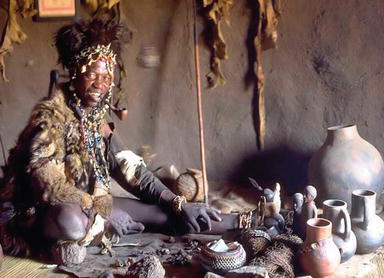Traditional healers play a significant role in the health practices of Northern Ghana. Their knowledge and methods offer unique insights into the community’s approach to health and wellness.
In rural communities, traditional healers are often the first point of contact for health issues. Their deep understanding of local customs fosters trust among community members. As a result, traditional healing remains vital in the region’s healthcare landscape.
However, in this article, we will explore some of the roles traditional healers play within the communities. We will also discuss some of the challenges they face in the community. Relax, as we delve into the world of traditional healers!
Role of Traditional Healers in the Northern Region
1. Cultural Significance
- Deep Roots: Traditional healing practices have been part of Northern Ghanaian culture for centuries. These practices are often intertwined with spirituality and community beliefs.
- Community Trust: Moreover, many people trust traditional healers for their profound understanding of local customs and ailments. They are often the first point of contact for health issues in rural areas.

2. Healing Methods
- Herbal Medicine: Healers commonly use herbal remedies made from plants native to the region. These remedies are believed to treat various ailments, from common colds to chronic conditions.
- Spiritual Healing: Alongside physical treatments, spiritual healing plays a crucial role. Healers often conduct rituals or prayers to address the spiritual causes of illnesses.
- Massage and Physical Therapy: Techniques such as massage and bone-setting are also prevalent among traditional healers. These methods are used to treat injuries and improve overall well-being.
3. Collaboration with Modern Medicine
- Complementary Practices: In many cases, traditional healers work alongside modern healthcare providers. This collaboration helps to provide a more comprehensive approach to health.
- Community Health Education: Healers often educate their communities about health practices, disease prevention, and nutrition, bridging the gap between traditional and modern medicine.
4. Challenges and Recognition
- Modernization: The rise of modern healthcare systems poses challenges to traditional practices. Some communities may overlook traditional healers in favour of Western medicine.
- Recognition: Efforts are being made to recognize and integrate traditional healing practices within the formal health system. This acknowledgement can lead to better health outcomes for communities.
READ ALSO: Top 10 Essential Tips for First-Time Travellers to the North